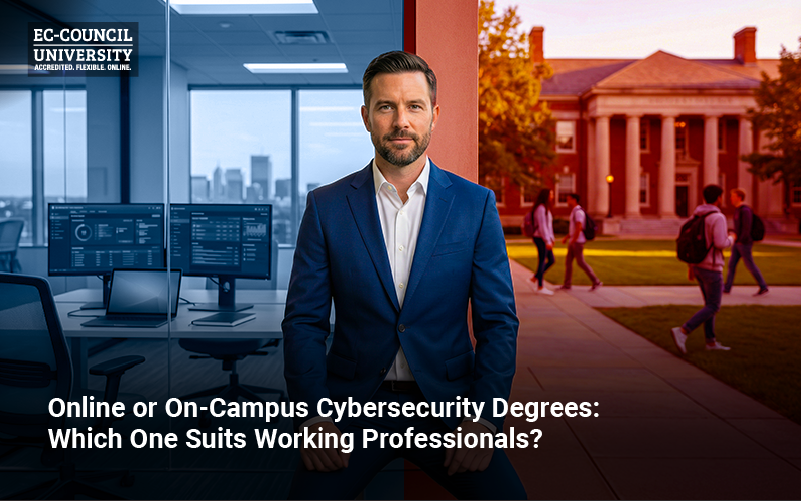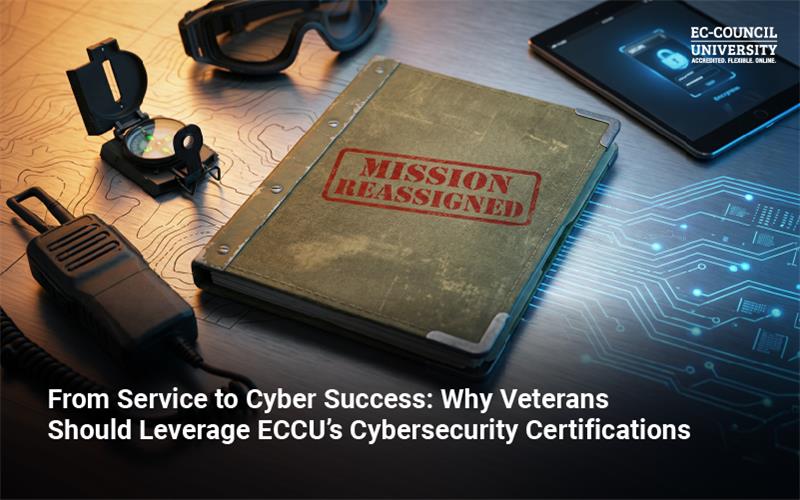The need for cybersecurity professionals has never been greater, and IT professionals are in a prime position to pivot into this field. Whether you work as a network administrator, software developer, or IT support specialist, shifting from IT to cybersecurity can be a smart career move that boosts your job opportunities and salary potential. However, this transition requires a clear plan, relevant cybersecurity training for IT professionals, and the certifications to meet cybersecurity job requirements.
In this blog, let’s walk you through navigating an IT-to-cybersecurity transition by identifying key skills, certifications, and career paths to help you make the switch seamlessly.
Why Transition from IT to Cybersecurity?
The cybersecurity industry is growing exponentially due to increasing cyber threats targeting organizations worldwide. Cybersecurity job openings continue to rise, with many positions remaining vacant due to a shortage of qualified candidates. IT professionals possess a strong technical foundation, making them ideal candidates for cybersecurity roles.
Some of the top reasons to make a cybersecurity career change include:
- High demand and job security: Organizations need cybersecurity experts to safeguard their digital assets.
- Competitive salaries: Cybersecurity professionals earn significantly higher wages than traditional IT roles.
- Challenging and rewarding work: The field offers problem-solving opportunities and the competence to stay ahead of constantly evolving cyber threats.
- Growth opportunities: Cybersecurity professionals can specialize in ethical hacking, risk management, and cloud security.
Essential Cybersecurity Skills for IT Professionals
While IT professionals have a strong technical background, cybersecurity requires specialized skills, including:
- Network Security: Understanding firewalls, VPNs, IDS/IPS, and secure network architectures.
- Threat Intelligence: Identifying emerging cyber threats and vulnerabilities.
- Incident Response: Handling and mitigating security breaches effectively.
- Cryptography: Implementing secure encryption and authentication methods.
- Penetration Testing: Ethical hacking to identify and fix security flaws.
- Security Compliance and Risk Management: Understanding regulations such as GDPR, HIPAA, and NIST frameworks.
If you already possess some of these skills, you’re on your way to meeting cybersecurity job requirements.
- Online Courses and Bootcamps: Many platforms offer cybersecurity training tailored for IT professionals, covering topics like incident response, ethical hacking, risk management, and more.
- University Degrees: Pursuing a full-time degree or certification in cybersecurity can provide a strong theoretical foundation and hands-on experience through labs and projects. EC-Council University offers industry-relevant online cybersecurity degree programs that equip IT professionals with the skills to transition seamlessly into cybersecurity roles.
- On-the-Job Training: Some IT roles allow employees to gradually transition into cybersecurity by undertaking security-related organizational tasks.
Cybersecurity Career Paths for IT Professionals: IT professionals have multiple entry points into cybersecurity. Here are some common career paths based on existing IT backgrounds:
- Network Administrators & Engineers → Network Security Analyst: Network security analysts focus on securing an organization’s network infrastructure, making this a natural transition for network professionals.
- Software Developers → Application Security Engineer: Developers can use secure coding techniques and application security testing to identify and mitigate software vulnerabilities.
- System Administrators → Security Operations Center (SOC) Analyst: System administrators familiar with operating systems can transition into SOC analyst roles, monitoring security incidents and threats.
- IT Support Specialists → Cybersecurity Analyst: Helpdesk and IT support professionals can transition into entry-level cybersecurity analyst positions by gaining security knowledge and experience.
- IT Auditors → Compliance and Risk Analyst: Professionals with auditing experience can move into cybersecurity compliance and risk management roles, ensuring adherence to industry regulations.
How to Gain Hands-On Experience in Cybersecurity
Gaining hands-on experience is essential when transitioning from IT to cybersecurity. One effective way to build practical skills is by joining Capture the Flag (CTF) challenges, which simulate real-world security scenarios to test problem-solving abilities. Contributing to open-source security projects offers valuable experience while engaging with the cybersecurity community. Setting up a home lab with tools like Wireshark, Metasploit, and Kali Linux allows aspiring professionals to experiment and enhance their technical expertise. Internships and volunteer work provide exposure to real-world cybersecurity challenges, making them a great way to gain industry experience.
Tips for a Successful Cybersecurity Career Change
Transitioning into a cybersecurity career can be an exciting journey with the right approach. Start by making the most of your IT experience. Skills like troubleshooting, networking, and programming can be powerful assets when shifting to cybersecurity roles. Keep up with the latest industry trends, read cybersecurity blogs, and attend security conferences to understand emerging threats. Building a strong network is as important as connecting with cybersecurity professionals through LinkedIn, forums, and industry events to gain insights and opportunities. Your resume and LinkedIn profile should tell a compelling story, highlighting your cybersecurity skills and certifications. Ace your job interviews by practicing answers to key cybersecurity questions on attack vectors, risk management, and security principles. With the right mix of knowledge, connections, and preparation, you’ll be on your way to a thriving cybersecurity career!
A successful IT-to-cybersecurity transition requires a strategic approach, continuous learning, and gaining relevant experience. By acquiring cybersecurity skills for IT professionals, obtaining industry-recognized certifications, and gaining practical experience, you can position yourself for a thriving career in cybersecurity.
EC-Council University provides comprehensive online cybersecurity degrees to help IT professionals transition seamlessly into cybersecurity careers, equipping them with the necessary knowledge and skills.
If you’re ready to take the next step, apply now!







